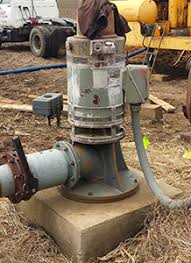 The oil rig explosion that killed eleven workers and causes the daily flow of an estimated 200,000 gallons of oil into the Gulf of Mexico presents a gut check moment on tort policy. A lot of harm has been and will be caused by this catastrophe, and somebody will bear the cost of that harm. Should it be the responsible parties? the victims? the taxpayers?
The oil rig explosion that killed eleven workers and causes the daily flow of an estimated 200,000 gallons of oil into the Gulf of Mexico presents a gut check moment on tort policy. A lot of harm has been and will be caused by this catastrophe, and somebody will bear the cost of that harm. Should it be the responsible parties? the victims? the taxpayers?
American tort law, under the principles of proximate cause and nuisance, tells some victims that they must bear the cost of their own harm because it is either too remote (not a “proximate” cause) or too common (to be compensable, damages from a public nuisance must be “different in kind” from those suffered by others) to require the responsible party to pay. The responsibility of those whose conduct caused the harm must have a “sensible and just” stopping point, according to established doctrine. As a general matter, under common law principles, it is “sensible and just” to cause victims to bear their own costs if the harm they suffer is essentially economic or emotional in nature, as opposed to bodily injury or property damage.
These uncompensated losses often hit the taxpayers as well as the victim. The noncompensable (in tort) economic losses that will surely hit the Gulf Coast region, particularly in the fishing and tourism industries, will reduce tax revenues at all levels of government and place additional demands on public services. These are losses that taxpayers will have to assume.
With the understandable hostility these days to government-sponsored bailouts of big corporations, it is useful to keep in mind that tort law is one of the most important tools available for making those whose actions injure others pay their own way at minimal cost to the taxpayer. While there is much to criticize about the efficiency and accuracy of the tort process, it is hard to criticize the fundamental goal of tort policy in making responsible parties pick up the tab for the harm that they cause, and in achieving this result without running up huge government costs that must be borne by taxpayers.
Critics of the tort system may respond by saying that BP customers will end up paying at the pump for this tort liability. Those critics would be right. But then, we believe in a free market in which government subsidies and bailouts don’t tip the scales, right?

